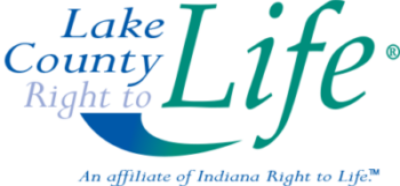Euthanasia
Euthanasia means “good death”, literally translated. The terminology may be misleading however, presuming that it is “good” to actively or passively contribute to the death of another person. It has gained support in recent years under the guise of respecting one’s dignity, while in fact doing the opposite. Too often the “right to die” becomes the “duty to die”, and serves as a means of cutting costs and time. Euphemisms such as “dying with dignity” attempt to justify such practices by associating the value of a person’s life directly with his or her quality of life. Unfortunately, this fails to consider the innate value of every life, which transcends the particulars of circumstance.
General Knowledge
Euthanasia refers to the act of purposely ending a person’s life, often by the administration of lethal drugs, or through the withdrawal of medical treatments and other life sustaining resources. There are several types of euthanasia including voluntary, involuntary, active, passive, and physician-assisted suicide. Voluntary euthanasia occurs when someone helps an ill person die per his or her request. Involuntary euthanasia occurs without the consent of the ill person. Euthanasia is active when a sick person receives lethal doses of drugs, usually from a medical professional, or from his/herself (i.e. the person could not die without proactive influence). When a person’s death is accelerated by withholding food, water, or life-sustaining treatment, it is referred to as passive euthanasia. Physician-assisted suicide is when a doctor helps a patient die, either by prescribing lethal doses of drugs, or through withholding food, water, and medicine.
Indiana Law
Current Indiana laws do not permit doctors or caretakers to have an active role in a patient’s death (i.e. mercy killing). However, the withholding of “life-prolonging” treatment is allowed in accordance with the ill person’s consent.
| Code Section | 16-36-1-13, 16-36-4-19 |
| Euthanasia Condoned in Statutes? | Euthanasia is not condoned or authorized by Indiana law. This chapter does not authorize euthanasia or any affirmative or deliberate act or omission to end life other than to permit the natural process of dying, including the withholding or withdrawing of life prolonging procedures under this chapter. |
| Effect of Withholding of Life-Sustaining Procedures | – |
The Indiana State Medical Association has also formally opposed assisted suicide.
U.S. Law
The U.S. Supreme Court decided in 1997 that a person’s right to die by physician-assisted suicide is not constitutionally protected. This means that most laws regarding the issue vary by state. The ruling made a clear distinction, however, between doctors playing an active role in killing a patient, and removing life-sustaining resources or prescribing lethal drugs per the patient’s request. Currently, six states have legalized the latter (California, Oregon, Colorado, Montana, Washington, and Vermont). Lethal doses of drugs may be given by a physician, but the patient must administer the doses his or herself.
Many of the remaining 44 states (including Indiana) have laws protecting the right of physicians to suspend life-sustaining resources and treatments. Euthanasia that does not meet either of these criteria is illegal in all 50 states, and D.C.
The American Medical Association has formally objected to assisted suicide. AMA policy states that “physician-assisted suicide is incompatible with the physician’s role as a healer, would be difficult or impossible to control, and would pose serious societal risks”.
Protecting Yourself
Life is fragile. Whether we are old, young, rich, poor, healthy, or ill, everyone is vulnerable to the physical and mental limitations life can deal without warning. In a single instant, our lives can be changed forever. How we respond is crucial.
The best way to respond is to delegate someone you trust to make your medical decisions in the event you are unable to do so. This will ensure the right decisions are being made by people who understand you, and the intrinsic value your life has. By doing this, it provides for less complication in executing your wishes as a patient, and guarantees your right to life will be respected in full.
There are 3 healthcare directives to safeguard your right to life, including a Durable Powers of Attorney for Health Care (DPAHC), a Living Will, and a Physician-Ordered Life-Sustaining Treatment form (POLST). The DPHAC is the most valuable of the 3, as it allows decisions to be made based on the specific condition and circumstances of the patient at the time. Unlike the DPHAC, the Living Will and POLST do not have this provision, and therefore force decisions to be made without pertinent medical facts and knowledge. Any healthcare or legal document is better than nothing, but the DPAHC is the superior choice for those who respect in full the right to life.
While the practice of euthanasia is still largely frowned upon, proponents of the “right to die” movement have gained momentum in recent years. Criteria for what constitutes a quality of life worth salvaging seem to constantly be changing, as evident by some of the legislation currently being drafted, including here in Indiana. Thus, is the danger of legalizing any form of euthanasia. We know that human dignity does not change, no matter what condition or circumstance we find ourselves in.
If you suspect a loved one is incapacitated and not receiving proper advocacy for his or her healthcare rights, please contact Lake County Right to Life.
Office : (219) 838-1138
Email: office@lakecortl.org
References
Indiana Euthanasia Laws. (2106). Retrieved from: http://statelaws.findlaw.com/indiana-law/indiana-euthanasia-laws.html
Schadenberg, A. (2016, September 26). Indiana Medical Association Opposes Assisted Suicide. Retrieved from: http://alexschadenberg.blogspot.com/2016/09/indiana-state-medical-association.html
